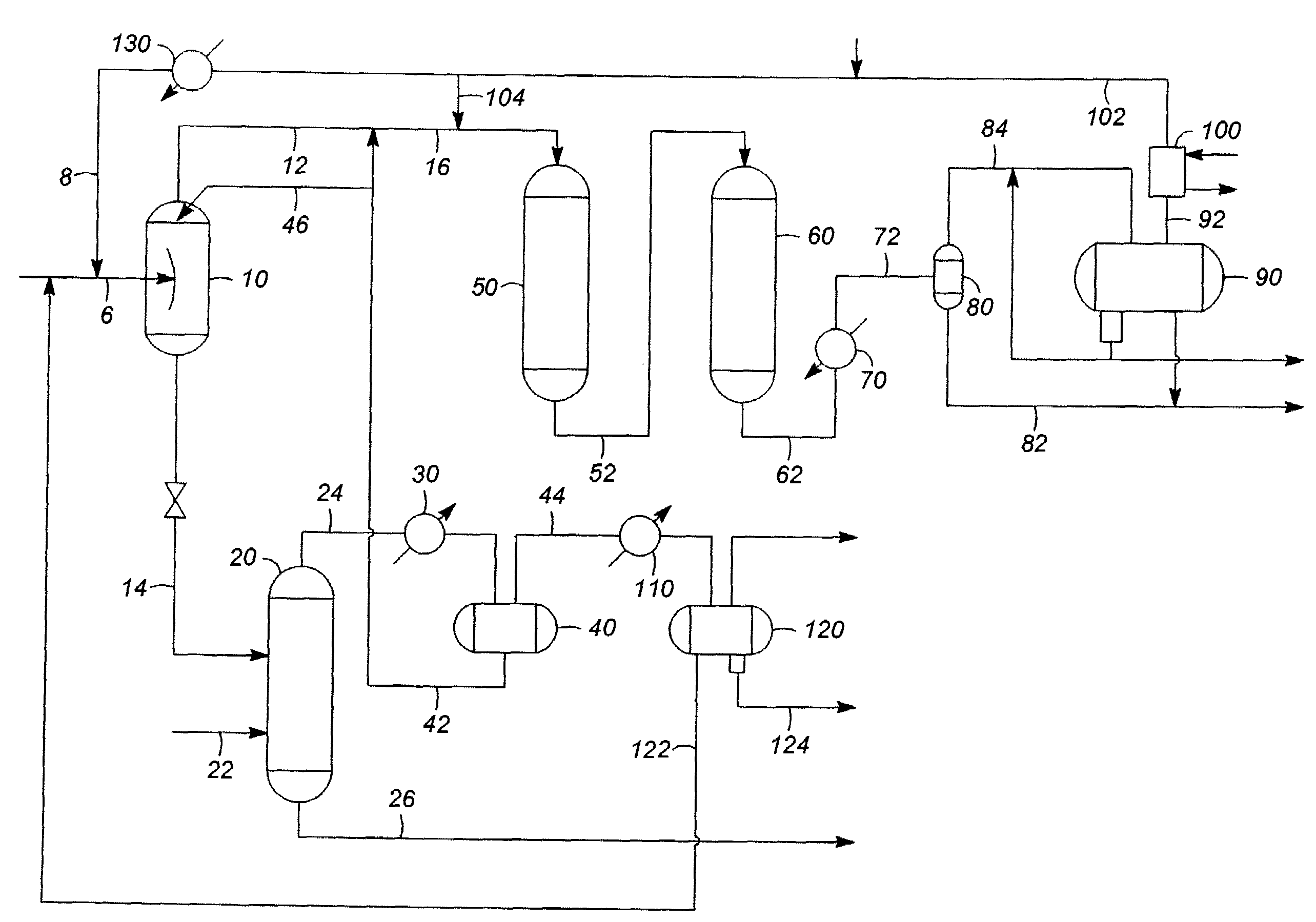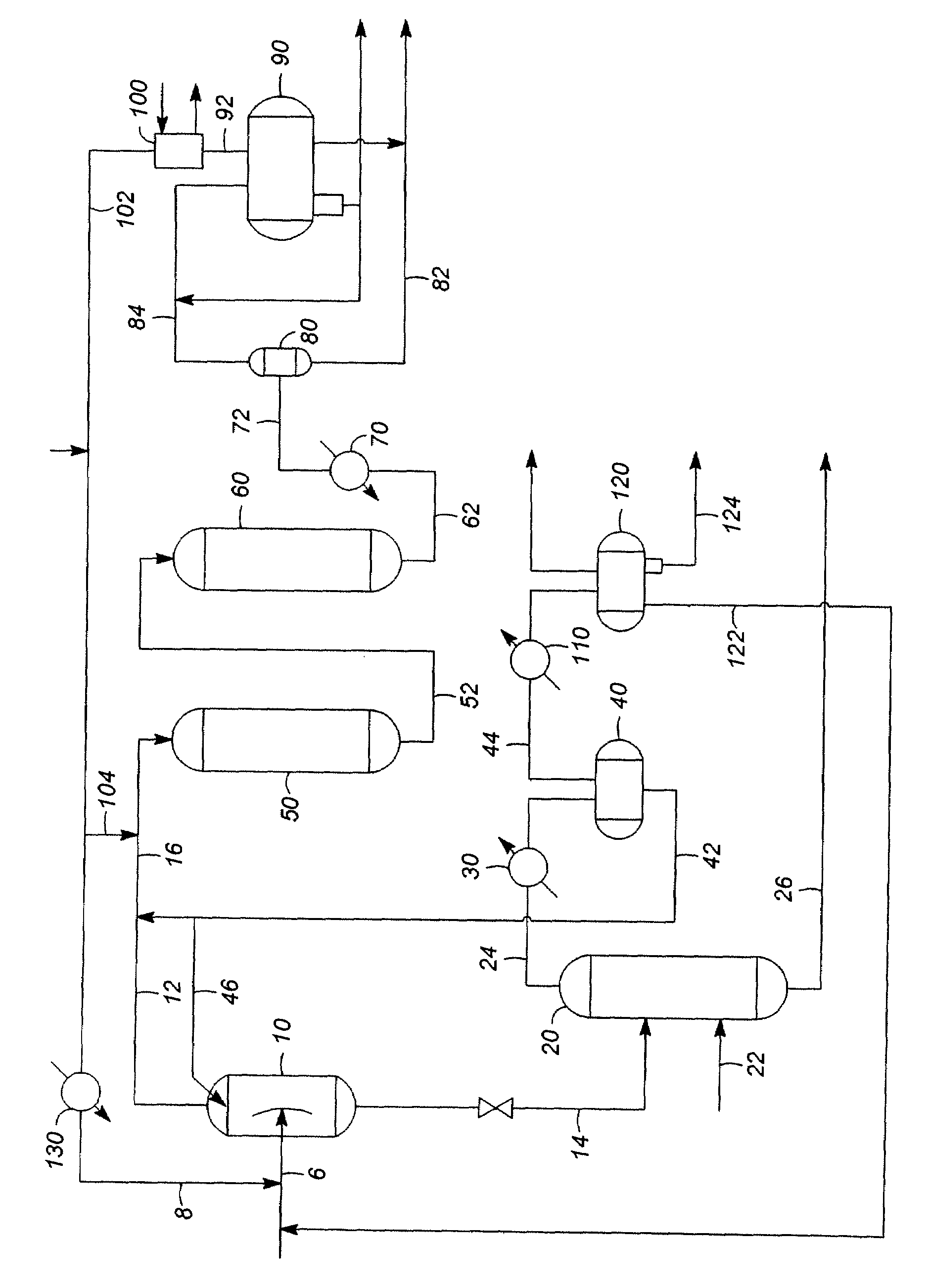Process for upgrading contaminated hydrocarbons
a technology for upgrading and contaminated hydrocarbons, applied in the direction of physical/chemical process catalysts, transportation and packaging, lubricating oils distillation, etc., to achieve the effect of high quality
- Summary
- Abstract
- Description
- Claims
- Application Information
AI Technical Summary
Benefits of technology
Problems solved by technology
Method used
Image
Examples
example
[0029]A simulation was performed using data and information available for current operations, while allowing for the addition of the new units for improving the oil water separation and improved oil recovery. The conditions and properties for the simulation were based on processing a blend of used lubricating oils as a feedstock. An oil feedstock 6 of contaminated hydrocarbons was mixed with the hot hydrogen gas stream 8 at a temperature of 485° C. in a flash separator 10. The flash separator 10 generated a flash vapor stream 12 and a flash liquid stream 14. The flash liquid stream 14 was passed to a vacuum stripper 20, where low pressure super-heated steam 22 was used to strip distillable hydrocarbons from the flash liquid stream 14. A vapor stream 24 from the vacuum stripper 20 was cooled to condense hydrocarbons in the vapor stream at a temperature above the dew point of the super-heated steam. The condensed hydrocarbons created a recovered oil stream 42, and some of the recovere...
PUM
| Property | Measurement | Unit |
|---|---|---|
| temperature | aaaaa | aaaaa |
| pressure | aaaaa | aaaaa |
| temperature | aaaaa | aaaaa |
Abstract
Description
Claims
Application Information
 Login to View More
Login to View More - R&D
- Intellectual Property
- Life Sciences
- Materials
- Tech Scout
- Unparalleled Data Quality
- Higher Quality Content
- 60% Fewer Hallucinations
Browse by: Latest US Patents, China's latest patents, Technical Efficacy Thesaurus, Application Domain, Technology Topic, Popular Technical Reports.
© 2025 PatSnap. All rights reserved.Legal|Privacy policy|Modern Slavery Act Transparency Statement|Sitemap|About US| Contact US: help@patsnap.com


